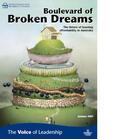The record meltdown of Meta stock earlier this month suggests turbulence in the tech world and a difficult period ahead for the company formerly known as Facebook. But even as Meta’s stock has fallen, the record profits being posted by fellow oligarchical tech firms Google, Microsoft, Apple, and Amazon indicates that Silicon Valley’s hegemony is far from over. read more »
Economics
The Evolving Geography of Opportunity: Leading Cities of the Past, Present, and Future
Cities which rise up as centers of prosperity and opportunity are places that ensure an emphasis on learning and innovation, a culture of openness to newcomers and unorthodox ideas, a favorable environment for commerce, a relatively good quality of life for residents, and a strong sense of shared community. The geography of opportunity is always evolving, as some cities emerge as centers of opportunity while others decline, with enormous consequences for people, places, and, indeed, civilizations. read more »
- Login to post comments
Are We Really Among the Wealthiest People on the Planet?
There are lots of ways of measuring how New Zealand is doing, and none of them is perfect.
We stack up very well on measures like life expectancy, unemployment, infant mortality, and car ownership. read more »
- Login to post comments
The Zaibatsu-ization of America
Enthusiasts of “the new economy” long cherished the notion that it would be different from the unenlightened, sluggish, and piggish older one. Yet our economy seems increasingly to resemble not some hippy capitalist utopia, but the deeply concentrated economy of pre-war Japan. read more »
- Login to post comments
A New Dawn for the Working Class?
The labouring masses are restless, as evidenced by the Canadian trucker strike, union drives in Amazon warehouses in the US and in demonstrations throughout the developing world. More revealing still may be the turmoil in the labour markets, where workers are changing jobs, creating their own and, overall, refusing to return to the structures of the pre-pandemic order. read more »
- Login to post comments
St. Louis Plans More Transit Spending
The Shiloh-Scott extension added 3.5 miles to St. Louis’ light-rail system in 2003, yet St. Louis transit carried 4.5 percent fewer bus and rail riders in 2004 than it had carried in 2002.
As an op-ed article in the St. Louis Business Journal points out, buses carried 40.3 million riders in 1993, before the region’s first light-rail line opened. read more »
- Login to post comments
Is Suburbia’s Global Benchmark Share of Urban Jobs 87%?
“The great enemy of truth is very often not the lie--deliberate, contrived and dishonest--but the myth--persistent, persuasive, and unrealistic. Too often we hold fast to the cliches of our forebears. We subject all facts to a prefabricated set of interpretations. We enjoy the comfort of opinion without the discomfort of thought.” read more »
Metro Costs of Living and Domestic Migration: 2010-2020
As the recently ended decade evolved, migration from more costly US metropolitan areas to those with lower costs increased. This developing dispersion is indicated in net domestic migration among the nation’s 384 metropolitan areas from 2010 to 2020. This article categorizes the 384 metropolitan areas by Bureau of Economic Analysis 2020 Regional Price Parities (cost of living), and their net domestic migration. read more »
- Login to post comments
"ESG" = Extreme Shortages Guaranteed!
The Environmental, Social and Governance (ESG) factors climbing up the agenda in the banking industry would have banks divest in fossil fuels. read more »
- Login to post comments
A Long Term Outlook on Housing Affordability
So, there’s yet another inquiry into housing affordability underway. This latest is called “The House of Representatives Standing Committee on Tax and Revenue inquiry into housing affordability and supply in Australia.” Chaired by NSW Liberal MP Mr Jason Falinski, it’s getting a few headlines with statements like ‘half the cost of new house and land packages consist of state and local government charges.’ read more »
- Login to post comments





















